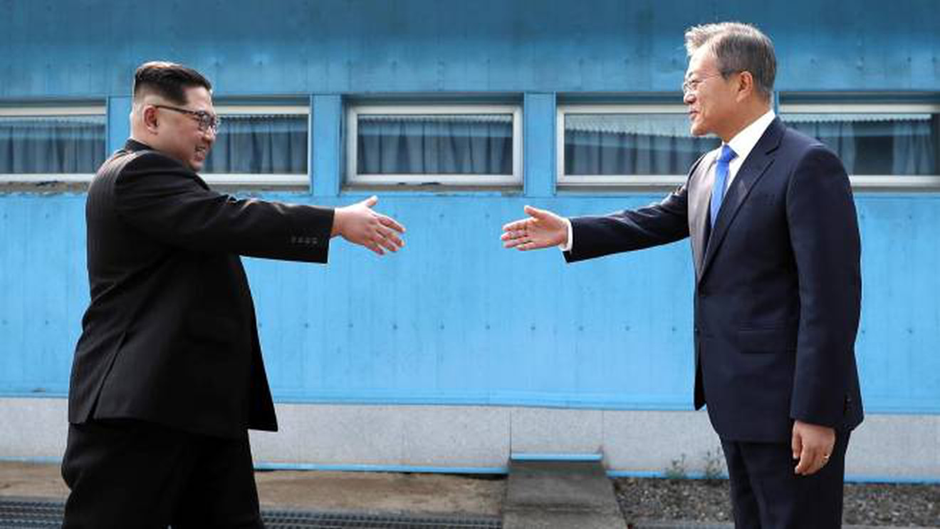
Author: Olivia Terragni
During the night, only one bright spot lights up in North Korea: the city of Pyongyang. Perhaps, due to the dark that surrounds it, we understand so little to comprehend what’s happening there.
Maybe it is hard for many to believe that a hacking army – capable of compromising computer networks around the world – is hiding in Pyongyang, when only a small fraction (1%) of North Koreans have access to the Internet.
Yet here, hackers are identified and trained as the former Soviet Block – NewYorker underlined – did with olympionics.

Except that the key resource this time is intelligence, mathematics in particular.
This place is a focus of interest for international analysts and for USA, who try to open a dialogue – at any costs – while Pyongyang challenges them: in 2020 the North Koreans tested two short-range ballistic missiles (banned by UN resolutions) that traveled 450 kilometers at an altitude of 60 km to dive into the Yellow Sea.
Why North Korea – so small territorially and economically – is so relevant and why Pyongyang is on the map of international attention? Maybe because of its ballistic capabilities? An advanced nuclear program? Because it is leading its population to starvation – or breaking stones – to invest in nuclear weapons?
“The truth will only set you free. But not until it is finished”
A nuclear arsenal and missile technology may be attempts to ensure the non-interference of outside powers with its internal affairs, especially out of fear of nuclear reprisal. But that’s not the main reason North Korea always seems to be successful in negotiations, despite ignoring restrictions and sanctions. In any case, Korea remains one of the most critical US security challenges for many reasons.
With its totalitarian regime, North Korea has few allies. China is its main partner and perhaps the only one with which it has “intimate relations” since the Korean War. Nord Korea and China also have important economic ties (for this reason Pyongyang still depends on Beijing), even if the nuclear test of 2006 has “cooled” their relations, even if physical connections have multiplied over the years and the two countries remain formal military allies, with the renewal of the Sino-DPRK Treaty of Friendship, Cooperation and Mutual Assistance.
The two countries – North Korea and China – are divided by water: the Yalu River for 1400 kilometers and the Tumen River for 790 kilometers. The Yalu River is a central point, above all it represents for China the point where Americans could penetrate its borders by land (not to forget the approximately twenty-nine thousand US soldiers and marines hosted by the democratic south): however, even the Koreans who try to cross the border, become the target of the guards who shoot on sight.
In any case, China does not look kindly on “raids on its land” and furthermore, in order for Korea to remain free from external interference, especially from Western powers, Kim Jong Un and his family – with the aim of unifying all of Korea – must maintain their position of authority in the regime through ideological control of the country’s population.
In this regime of independence and “freedom” from external interference, especially from Western powers, however, Korea continually tries to avoid a direct confrontation. Its main goal – from Kim Il Sung to Kim Jong Il to Kim Jong Un – is the unification of Korea under its rule.

In April 2018, Kim Jong-un and Moon Jae-in met in Panmunjom: their reunification might be annoying to China that aims to colonize Asia,. If the two presidents – North and South – were to reconcile – without attracting too much attention – maybe Russia would emerge victorious with its naval base in Vladivostok.
On the other hand, the Global Posture indicates the need to increase the US military presence in South Korea, against Chinese and North Korean threats. This “war” will not end anytime soon.
For over 50 years, North Korea has sporadically conducted operations against its enemies, particularly South Korea.
These actions include numerous armed raids, the capture of a US ship in international waters and the detention of its crew for months, attacks on South Korean warships and fishing vessels, the hijacking of a South Korean passenger plane and the explosion of another. electronic warfare (EW) against South Koreans, including global positioning satellites, multi-country cyberattacks, and successful or attempted assassinations of South Korean officials, including the country’s president. Last but not least, the breach of the internal network of the government organization that conducts nuclear energy research, the South Korean Atomic Energy Research Institute (KAERI). Not bad, right?
So far, what the Western press writes matches the truth, but in part inaccurate. This was underlined by Asia’s geopolitics expert and peace activist KJ Noh – when the US and South Korea review their plans against North Korea: “the US has no intention of easing tensions between the South Korea (US vassal) and North Kore “. This would be against their strategic interests: if that happened the two could confederate and join China’s Belt and Road Initiative, becoming allies.
This would paralyze the security architecture of the United States in the Northeast Pacific, and South Korea is a key battle point for its geostrategic position as a bridgehead over China.
Tim Beal expert, journalist and academic argues that in this time of heightened tension with China, the most dangerous place in the Pacific is not the South China Sea or the East China Sea, but on the Korean peninsula.
While South Korea aims to obtain the transfer of OPCON (wartime control of its armed forces) by 2022, in accordance with a transition plan agreed with the United States, we will see a conflict escalate as the new round of presidential elections between a conservative candidate favored by the United States and a progressive candidate sympathetic to China.
The second part of this article can be found here: Electronic warfare (EW) between the USA, China, South and North Korea (second part)
Follow us on Google News to receive daily updates on cybersecurity. Contact us if you would like to report news, insights or content for publication.
